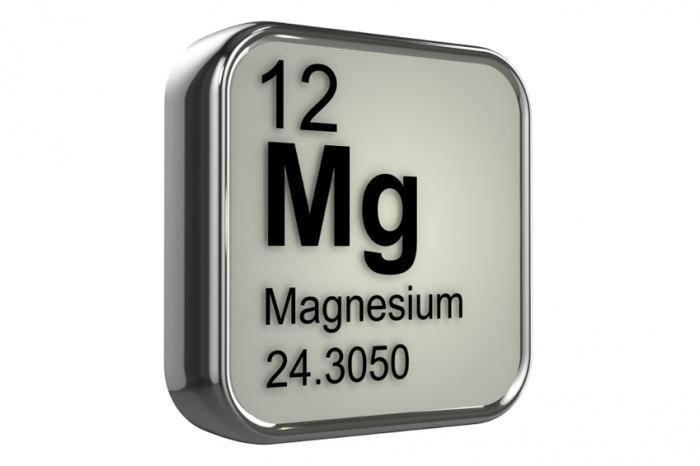Magnesium has been called the miracle mineral! Let’s take a moment to find out what might be so miraculous about this nutrient.
Before we dive in, let’s be clear about what minerals are and what they do in the body. Minerals are chemical elements (yes, science nerds, you’ll find them all in the periodic table) required by the human body to support essential functions. In fact, magnesium is required by every cell in the body. It plays a critical role in nerve transmission, cardiac function, neuromuscular conduction, muscular contraction, blood pressure, and glucose and insulin metabolism. Thus, as we’ll see, magnesium also plays a therapeutic role in treating a variety of diseases. In fact, magnesium deficiency is associated with many chronic diseases.

Clearly, adequate magnesium intake should be a priority for all of us. As a dietitian, I always like to encourage a food-first approach. As noted below, lots of plant-based foods are rich in magnesium, in theory. In reality, soil depletion likely decreases magnesium uptake in plants as they grow, which means that we might not be getting as much as we think. Below are some foods that tend to be high in magnesium.
Food sources of Mg:
· Green leafy vegetables
· Nuts
· Legumes
· Whole grains
However, due to conventional farming practices, which do not adequately allow for soil to be replenished, mineral content is likely lower than reported.

In addition, studies have indicated that only half the US population consumes adequate magnesium. In light of these realities, I will sometimes recommend magnesium supplementation. Magnesium is available different forms, including capsules, powders, and even topical creams. You can use my ,online dispensary to explore the forms and brands that I recommend. Just set up a profile, locate my “favorites”, and you’ll get a discount on high quality, trusted brands.
I addition to utilizing the dispensary, you should keep the following physiological parameters in mind when considering supplementation.
Magnesium physiology:
The total body stores of magnesium are between 21 and 28 g in the average 70 kg adult. Normal serum magnesium usually has a range of 1.7 to 2.5 mg/dL. Most of the magnesium is in the skeletal bone mass, which accounts for more than 50% of the body stores.
Dietary Reference Intakes (mg/day) for magnesium:
1-3 years: 80
4-8 years: 130
9-13 years: 240
14 years and older:
Females: 320-360
Males: 400-420
Therapeutic Uses of Magnesium Supplements
· Migraine:
Improves all symptoms in patients with aura (symptoms that precede the migraine)
As an adjuvant therapy for associated symptoms in patients without aura.
· Constipation:
Magnesium hydroxide (milk of magnesia) or magnesium citrate are useful in treating constipation by acting as a natural laxative.
· Indigestion:
A randomized double-blind crossover study showed that treatment with magnesium is more effective than ‘H2 blockers’ as famotidine (Pepcid)
· Hypertension/Eclampsia:
Acts as a calcium antagonist on blood vessels smooth muscle leading to vasodilation.
· Insomnia:
Magnesium reduces cortisol levels & enhances melatonin levels à better sleep efficiency.
Other benefits of Magnesium supplements:
* Magnesium maintains or improves bone mineral density.
* Higher magnesium intake is associated with a lower risk of developing metabolic syndrome.
* Magnesium lactate or citrate is effective for leg cramps in pregnant women.
* Studies have linked magnesium deficiency to myocardial infarction, congestive heart failure, primary hypertension, and angina pectoris.
What does Magnesium deficiency look like?
Symptoms of deficiency include:
· Increased insulin resistance
· Increased smooth muscle and platelet reactivity.
· Chronic cardiovascular diseases, including hypertension, stroke, diabetes mellitus, migraine headache, Alzheimer’s disease and hyperlipidemia.
How is Mg excreted from our bodies?
Magnesium is excreted through the kidneys, so it should be used with caution in patients with kidney disease.
Sources:
Therapeutic Uses of Magnesium – American Family Physician (aafp.org)
